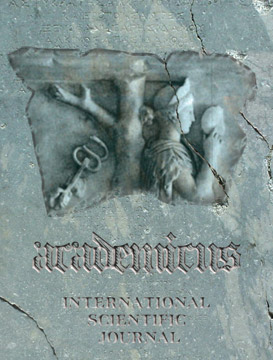Title:
Author(s):
Abstract:
Since the fall of their socialist centralized systems, the countries of Central and Eastern Europe have experienced considerable changes to their socioeconomic policies. The Republic of Albania has encountered several noteworthy challenges since 1992, and initially, eradicating gender inequality was not given much emphasis. Gender equality is an essential element that needs to be incorporated into the legal frameworks of all candidate countries aspiring to join the EU, in addition to being a fundamental right and a shared vision of EU institutions. In developing nations, social exclusion can be either active or passive. Because females are excluded from many facets of society, such as the workforce, education, access to the legal system, the realization of their property rights, and so forth, women's demands and interests are frequently disregarded. Following the UN Convention on the Elimination of All Forms of Discrimination Against Women (CEDAW), the Republic of Albania has developed a number of laws, policies, and action plans pertaining to gender equality, in addition to measures addressing issues such as human trafficking, domestic abuse, closing the representational gap in politics and the economy, and other matters. This essay looks at Albania's methodology for evaluating European standards and, where necessary, adapts them to regional political and cultural norms. Ensuring that the body of legislation is in accord with the culture in which it functions is a better strategy to enforce laws than merely making models, rules, and regulations. This is a comprehensive effort to assess and contrast specific in pursuing full EU integration. This is an overall attempt to evaluate and compare some of the strategies and actions Albanian representatives and society have taken to address the gender factor in the democratization process and institution-building while pursuing full EU integration.
Keywords:
Albanian transition; gender equality; legal approximation; EU conditionality;
Full Text PDF:
References:
View complete reference list, click
here
Digital Object Identifier DOI:
The article's content ©Academicus™ The 2008 Law "On Gender Equality in Society" and some of its effects on equal representation.
by
Dr. (PhD) Juliana Marko Gjinko
is licensed under a Creative Commons
Attribution-NonCommercial 4.0 International License.
Presented:
December 2023
Included for Publishing:
December 2023
Published:
January 2024,
Volume 15,
Issue 29
Academicus International Scientific Journal is an Open Access Journal. This means that all content is freely available without charge to the user or his/her institution. Users are allowed to read, download, print, search, or link to the full texts of the articles in this journal without asking prior permission from the publisher or the author. This is in accordance with the BOAI definition of open access. Users are obliged to cite the source (Academicus International Scientific Journal) and the author, according to the international citation standards.
To learn more about the OA Policy followed by Academicus ISJ, read Journal Regulations
Academicus
International Scientific Journal
pISSN 2079-3715
eISSN 2309-1088
Address:
Sheshi i Flamurit, Rruga Muze
Al-9401 Vlorë, Albania
Tel: +355 68 60 60 555
info@academicus.edu.al
https://academicus.edu.al




 Scholar
Scholar
 Crossref
Crossref
